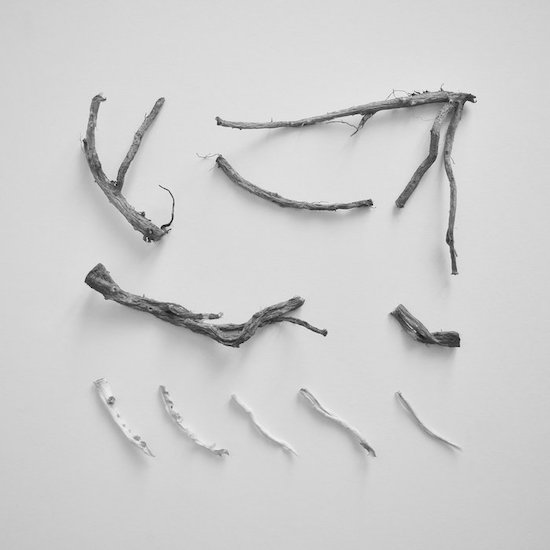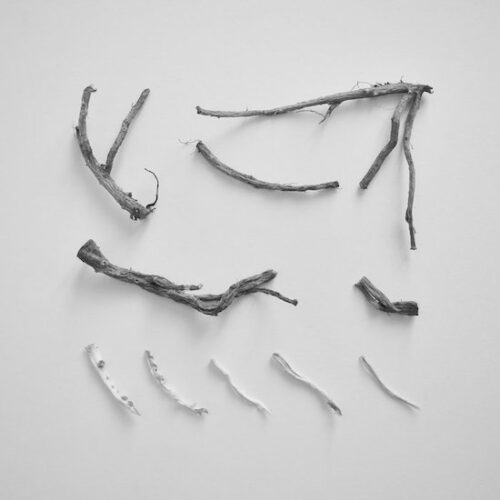It’s difficult to summarise Richard Skelton’s output, there being so much of it, but it might be useful to think of him as a composer who has often been preoccupied with stringed instruments both bowed and fretted. Here though, he has shifted gear somewhat and the bulk of this new work is built around sine and square waves. And it has the distinct feel of the digital. This is interesting given his interest in the natural world, decay and geology (in this case we are at the Scottish borders). And apparently the album title and track titles are translations of Anglo Saxon ‘Leechdoms’, making the pieces here quite literally charms to remedy sickness or injury.
What I find immediately captivating here is the ongoing theme of degradation. The pieces play out through the development of extended chords that slip quickly from crystalline purity to broad, dark, distorted almost industrial noise that flirts gracefully with atonality and dissonance. That said there is a rich and definite harmonic sensibility here, and the shifting chordal ground frequently starts to form opaque melodic contour.
The harmonic is carefully balanced with the timbral and the layers of static, distortion and overtone present to the listener the beautiful paradox of abundance within the seemingly empty. These pieces feel like landscapes in their own right. Listen to ‘Against All Tendernesses Of The Eyes’ to see what I mean. This is monolithic in its stature, it’s sort of like hearing the internal song of a volcanic plug.
I love drones, and Skelton uses them well. The real magic of drones, for me at least, is how much can be implied by the sonic information around them. One well-placed note can completely alter chordal hierarchies, change key, or take us from lightness to darkness without the need for any further instrumentation. Without meter. Without any shift in volume or velocity. To compose in this way takes not just skill, but also taste. This album is full of tastefully placed intervals and unhurried changes that shift over the ear, glacial and bold. But it’s not all like this. ‘For the Application of Fire’ is an exercise in tense, visceral fear. I love it. It’s a bit like a John Carpenter score with all the kitsch taken out and replaced with a more natural violence. When heard at volume, it’s all but overwhelming. The subsequent ‘For an Inward Wound’ does nothing to relieve the tension.
The press release frames this album as a “dark gloom”, but that doesn’t feel quite right to me. It is too bright, angular and strident for me to think of it as gloomy. Sure, there may be mist passing over the landscape, but it is a landscape of robust physicality. There are clear edges and things that perhaps should remain unseen (or unheard) are unapologetically present. Those listeners who are less keen on Skelton’s occasional ventures into recognisable classicism will rejoice at this record I’m sure. A taut, at times challenging, but engrossing collection of sounds. I think I’ve come to think of it as a sort of necromancy of land. Please do spend time with this.



